Books, books, books. When they tell a true story, it’s like reading in an entirely different language: tales of a family, a restaurant, foreign history, pop culture, an entire language, a really big pig, and of course, the joy of sex. If you’ve ever dreamed of floor-to-ceiling bookshelves with a sliding ladder on wheels to help you navigate your extensive, intelligent, diversely populated library, here are some volumes that should make a home in your nonfiction section.

How does anybody make it through the conspicuously over-detailed descriptions of household furnishings that fill the pages of most modern fiction when there’s amazing nonfiction like Out of the Night? The memoir of Richard Julius Herman Krebs, alias Jan Altin, is a constant barrage of his movements—as a socialist agitator in Germany, stowaway in tramp steamers, apparatchik in the Comintern, Nazi prisoner, double agent within the Gestapo, and eventual emigrant to the United States. He barely has time to describe the riots he starts, let alone the color of the living-room lampshades. There’s no opportunity to be pretentious when you’ve ducked onto the first liner you spot so you can sleep in the bilge until you hit South America where you avoid a double-cross by your own party after they set you up in a flawed assassination attempt. Maybe that wouldn’t be the best time to hand out socialist propaganda to the crew, but it doesn’t stop him. —Llewellyn Hinkes
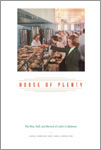
There’s a legion of traditional Chinese medical practitioners who can look at a menu and “ask” their body what they should eat—their sensitivity is honed to knowing exactly what their systems need. When discussing this topic a few days ago, the joke was that they’d have a treat at Luby’s Cafeteria. To most, the name of that restaurant may connote only the site of a massacre 16 years ago. But to many, especially here in Texas, it brings warm memories of square, fried fish, endless glasses of iced tea, and cash registers that spat out change at kid-level. House of Plenty brings back all this, and provides the context of how the family of Luby’s cafeterias began, grew, and thrived—and did they ever—operating on zero debt and nothing short of a true utopian ideal. Really. —Andrew Womack
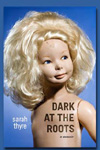
This book begins with the author, as a child, defecating on the floor of her family’s garage. “Making potty” (in the words of Sarah’s mother) and all of its particulars—texture, location, difficulty of production, inappropriateness of location, and the constant worrying over all these details—is a recurring and hilarious concern in Dark at the Roots. That particular attention to all that is uncomfortable about childhood, revealed honestly and hilariously, is a quality that elevates this childhood memoir far above its genre. It’s not important or brave, but it is totally fearless in its willingness to expose with precise detail every misstep, rush to judgment, desperate need for acceptance, class fixation, and constant rejection that are the birthright of every single kid not preternaturally blessed with tan skin, pretty hair, wealthy parents, or a strong pitching arm. I’m really grateful for Sarah Thyre’s puerile obsessions and extraordinary memory. —Todd Levin
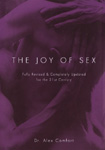
Thirty-five years after its release, The Joy of Sex is still a book worthy of passing around your slumber party. It’s full of frank insight and sex advice that tells me far more than I ever wanted to know about Dr. Alex Comfort. (He keeps instructing men to put their big toe in the vagina. Men, do not put your big toe in my vagina.) He is frustratingly misguided at times, especially about the female orgasm. (From the entry on mons pubis: “Many men are not aware that most women can be brought to orgasm simply by holding [the mons pubis] in the cupped hand and kneading or shaking it.” Oh, sorry, I missed that part. My mons pubis was coming like a freight train.) But it is fun to see how far our understanding of sex, in all its weirdness and beauty and terror, has come. And the illustrations? Still pretty hot. —Sarah Hepola
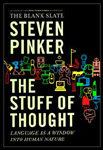
Steven Pinker, a Harvard-employed, linguistically based behavioral psychologist and member of the Luxuriant Flowing Hair Club for Scientists, is a rare personage in that he’s a best-selling academician, and, in Richard Dawkins’s showman-like evaluation, “a star.” A friend introduced me to Pinker’s work, recommending The Language Instinct, in which Pinker relays many of Chomsky’s foundational theories of universal grammar with examples of common usage. (No slight to Chomsky, but Pinker’s translation is more accessible and pertinent.) In preparation for the release of his new book, The Stuff of Thought, Pinker went on a publishing tear with theories on our less violent culture, dangerous questions science must ask, and cursing, all of which dovetail into the crux of this book, which examines how our ideas are connected to our words for them. He does so by referencing everything from pop culture (Frank Zappa, Calvin & Hobbes, Monty Python) to crises of miscommunication (Sept. 11, Bush-isms, the FCC). Perfect for us armchair sociolinguists. —Erik Bryan
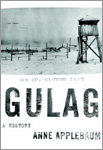
State-sponsored wars between bitches and thieves; a house of meetings where the condemned embrace the forsaken; poets composing prison newsletters before dying in raving agony; journeys to places so desolate that the horror stories remain unconfirmed because so few ever returned; exiled survivors snarling with sorrow and resentment. No, it’s not a holiday outing with the family, it’s Gulag: A History, Anne Applebaum’s groundbreaking, single-volume history of the Russian Gulag system. Best served with pickles and black bread as you call your lazy no-good boss a dirty name in the break room. —Tobias Seamon

I read a lot of books about the environment and most of them make me want to pitch myself off a cliff. But something about Alan Weisman’s The World Without Us manages to be both dismaying and whimsical at once; he skirts the twin traps of so many environmental books by neither overwhelming a reader with hopelessness, nor shrieking like a Cassandra into the void. “Look around you, at today’s world,” Weisman proposes. “Your house, your city. The surrounding land, the pavement underneath, and the soil hidden below that. Leave it all in place, but extract the human beings. Wipe us out, and see what’s left.” He whisks his readers from the de facto wildlife preserve of Korea’s DMZ, to Kingman Reef, an uninhabited atoll 1,000 miles south of Oahu, and lots of curious places in between. Did you know that 13 million gallons of water need to be pumped out of New York City’s subway systems every day? Or that multi-level underground cities are carved into the volcanic tuff of Cappadocia, Turkey? —Anthony Doerr
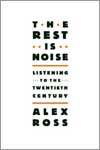
I’m almost finished with Alex Ross’s The Rest Is Noise, a titanic history of 20th century music that’s gripping, exhaustive, and literally too heavy to pack on the Metro. But the education I’ve gotten is incredible, and the sagas of the century’s composers come alive with all their genius and envy. The gossip and petty fights that rise from letters and overheard conversations are particularly fun. —Rosecrans Baldwin

I’ve been to Russia twice (don’t ask) and both times found it to have an eerie, timeless, washed-out feel. Also scary as fuck, but that’s neither here nor there. For someone who hasn’t been to the motherland, the best depiction of this feeling I can think of comes from Anne Nivat’s The View From the Vysotka . The French author lives in the famed Tanganka vysotka, one of seven towering Moscow skyscrapers conceived by Stalin and built by prisoners. Structured as a series of interviews with the people who moved through the building’s orbit—the residents, shopkeepers, cleaning women, and priced-out families—the book slides seamlessly between past and present, just as many Russians do. The Russian-to-French-to-English translation muddles and confuses their words, and you will leave with much the same feeling I had after wandering an overcast Moscow for a few hours without a map. —Beth Milton

I came away from The Good Good Pig with the realization that I may in fact be a sucker for animal books. I generally find them more touching than most books about humans. Sy Montgomery, a naturalist who’s worked with gorillas and dolphins and all number of exotic creatures, tells the true story of an enormous pig that came into her life by accident and then became her whole life, the 750-pound center of attention in the tiny town of their residence. It’s an endearing read, especially when she refers to her chickens as “the Ladies” and her giant black and pink hog as Chris (full name Christopher Hogwood). Despite her credentials, the author somehow makes her life seem only slightly more unusual than anyone else’s, and the story, peppered with bits of hog history, remains dedicated to the life of a pig, and the people who happened to run across it. —Bridget Fitzgerald

In a world where missionary, atheist science writers like Richard Dawkins and Natalie Angier frequently do battle with the political forces of fundamentalist, anti-science faith, it’s refreshing to the point of cataclysm to read Ken Wilber’s The Marriage of Sense and Soul. This page-turning, rigorous look at the empirical facts of religious experience as well as the elements of mystery in math and science makes me see God and write algorithms simultaneously. It’s impossible to read this book and not come away feeling more connected to both physicists and mystics—and to see why often there’s no distinction between the two. —Lauren Frey

The Goshawk, T.H. White’s memoir of the months he spent trying to train a falcon, is mostly the crazy story of what a privileged poetic pacifist decides might be the best way to sit out the war and make some money. You can try it too: Retreat to the English countryside near a spivey or hedgebreak, obsess over a feathered friend that you more often than not refer to as “lunatic,” then write a book about it. And if the hawk escapes before you train it, all the better—as the experience will inform your most beloved children’s tale, in which you can replace the bird of prey with liberty-minded Lilliputians! —Elizabeth Kiem
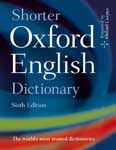
If you need any evidence that the Oxford English Dictionary means serious business, the 20 volumes that comprise the second edition should be convincing. Such a dictionary is clearly not for use by us mere mortals, which is why the new, two-volume Shorter Oxford English Dictionary (Sixth Edition) stands as a useable lexicon for those of us in need of such gold-standard reference. Its 3,700 pages hold 600,000 definitions, which include 2,500 new words and eliminate 16,000 formerly hyphenated words. (If that sounds overwhelming, this should assuage you: Editor Angus Stevenson and legions of word elves are neither Luddites nor naysayers to modernity, thus the new edition also ships on CD.) Recently I was moved to contemplate the ontological standing of dictionaries in reading a novel in which the character encounters a 1929 edition of a Merriam Webster and enters some kind of fugue state. Indeed, sometimes it’s like that. —Robert Birnbaum

